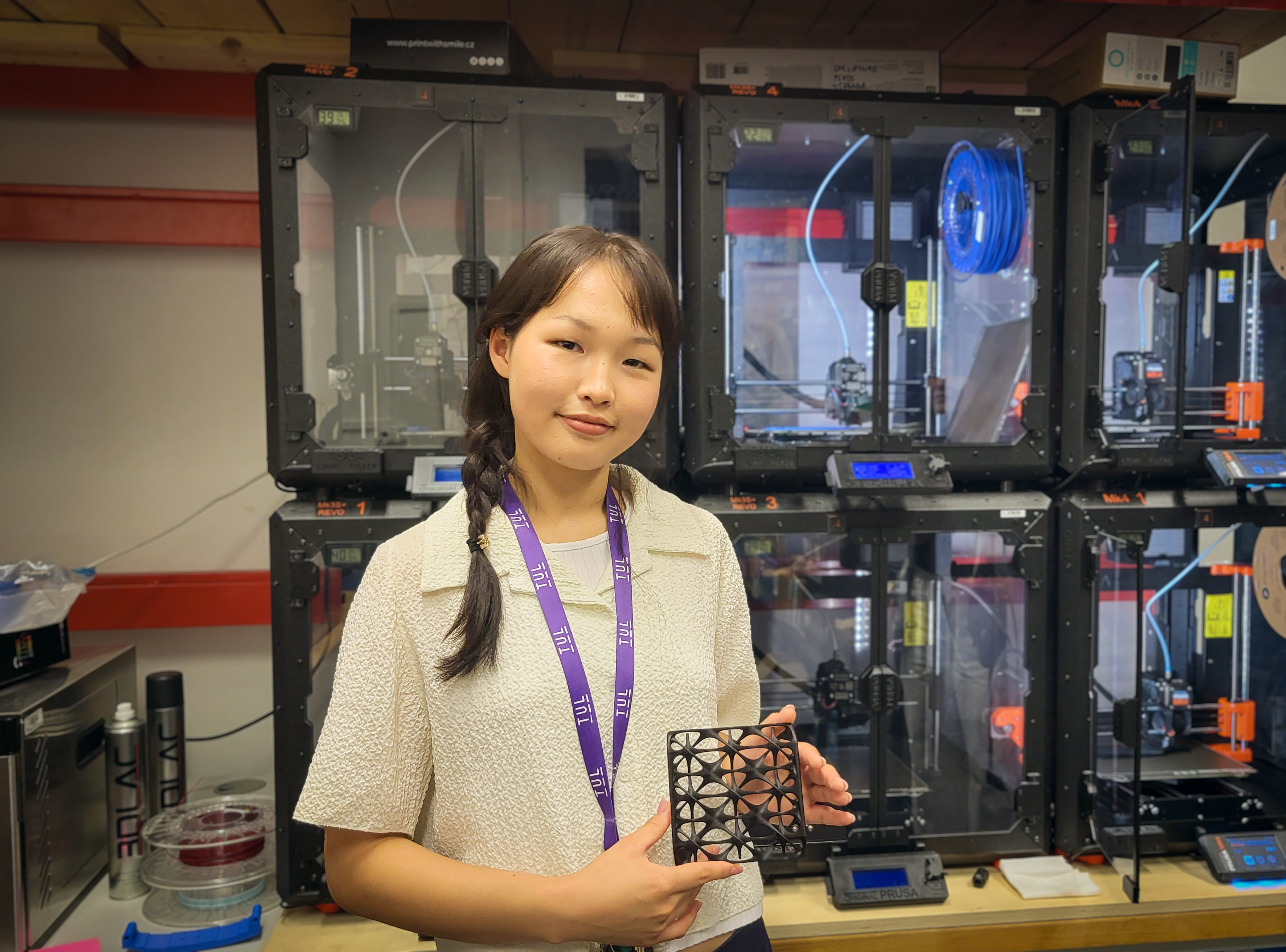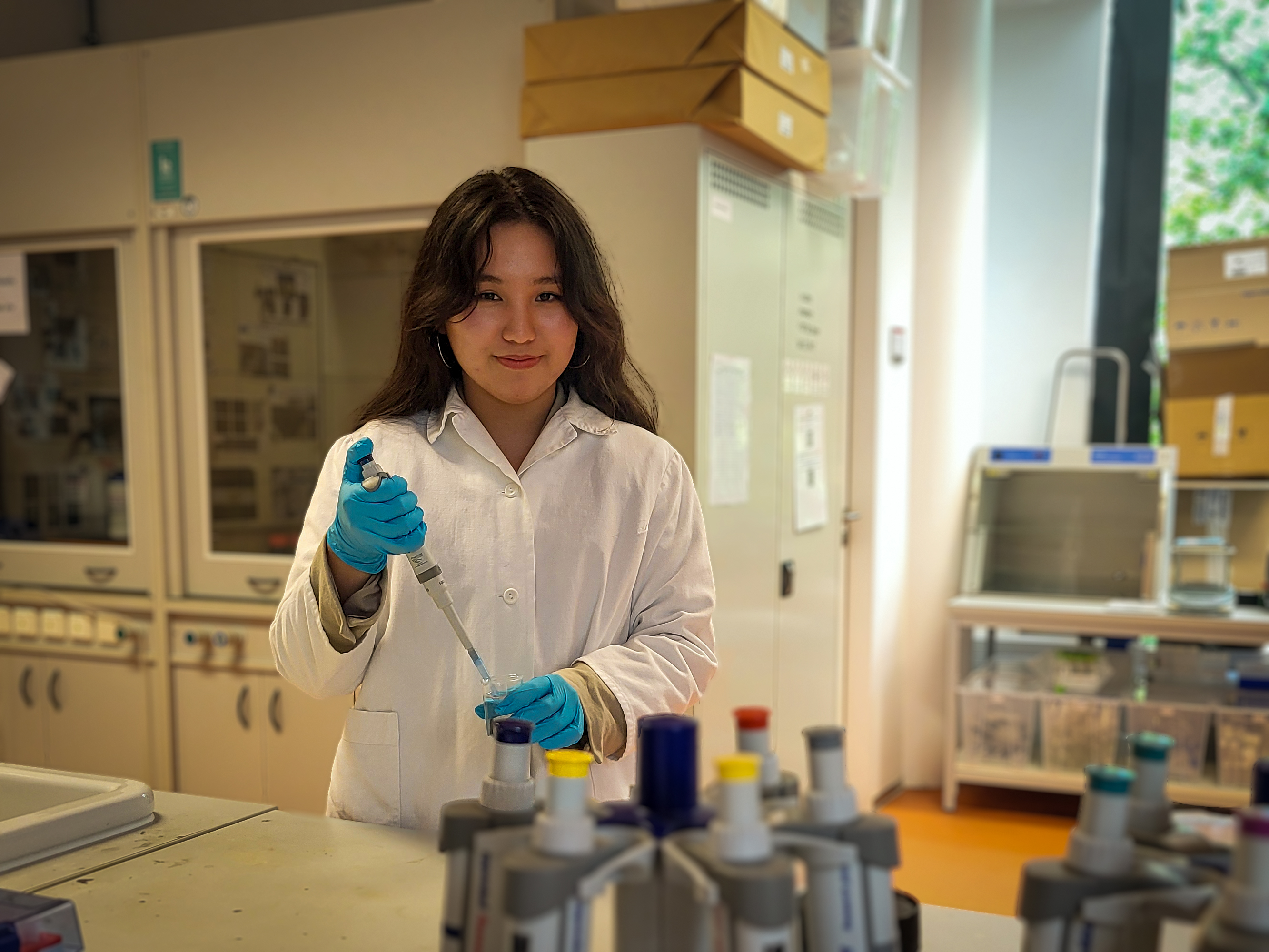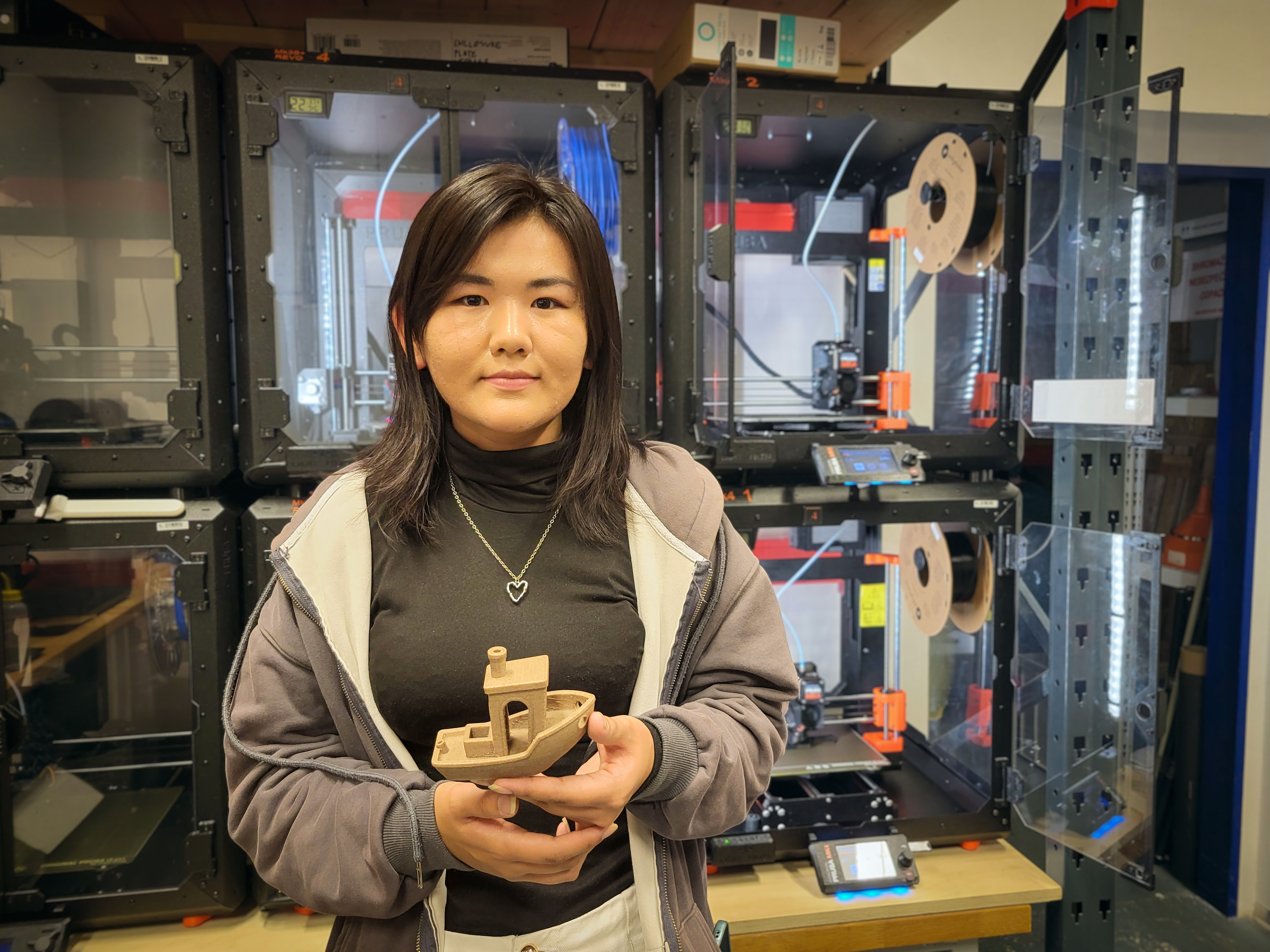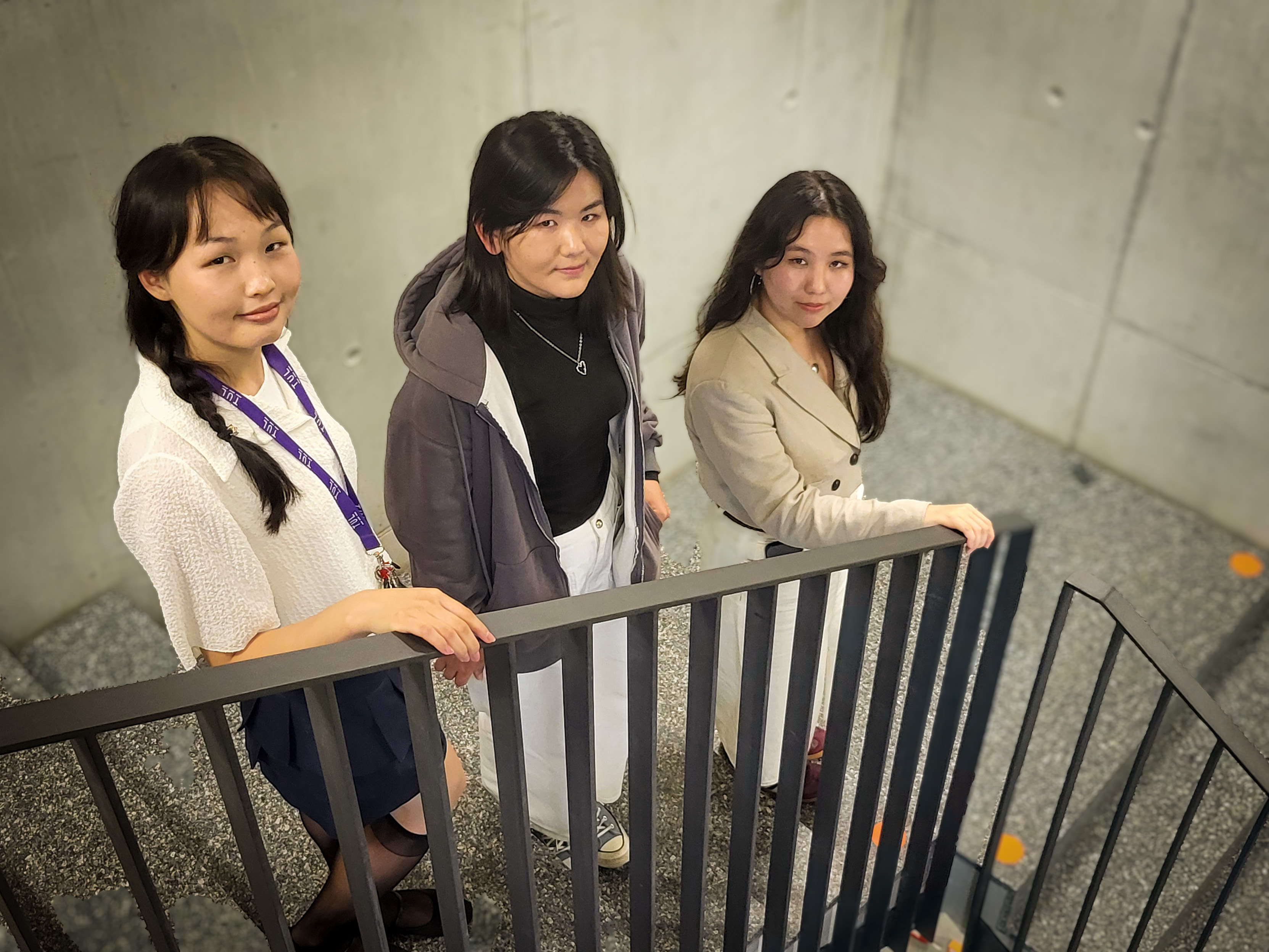Being at CXI Through the Eyes of Three Mongolian Students
28. 8. 2025
Nomin, Bolor, and Khuslen student of bachelor program of nanotechnology at the National University of Mongolia (NUM) spent their internship at the Technical University of Liberec (TUL). They spoke about their studies, their work at CXI TUL, and what this experience has meant for them as scientists and as people.
The story of Nomin, Bolor and Khuslen begins with Bulgan Tamir, a TUL graduate who spent eight years in the Czech Republic. After returning home, he did not cut ties with the country, but on the contrary, he began actively building academic and cultural connections between the two nations. Through these efforts, he connected students with Professor Ganzorig Chimed, the founder of Gerlab at the Department of Chemical and Biological Engineering at NUM and presented the idea of sending them for internships in Liberec. Every year, the Czech Ministry of Foreign Affairs announces a program supporting the exchange of students and teachers between Czech and Mongolia. After discussions between the university and CXI TUL about suitable topics for cooperation, the Czech Embassy in Mongolia also joined the project and provided strong support. With its help, everything was arranged, and the story took an important turn when Miroslav Černík, Director of CXI TUL, travelled to Mongolia to further strengthen the partnership between the universities, enabling Nomin, Bolor, and Khuslen to spend a three‑month internship at CXI TUL.
Why did you choose Liberec?
Nomin: I first heard about this internship program in the Czech Republic and researched the university and Liberec. TUL interested me because they combine nanotechnology with wastewater treatment, which connects to my bachelor theses.
(Side note: At just 20, Nomin was already a pro at pipetting, while many students are still staring at the pipette unsure how far to press it!)

What were you working on?
Bolor, Khuslen: We’re working on 3D printing and advanced material.
Nomin: I’m learning how to clean wastewater using nanofibers, nanocarriers, and other materials. I also learned how to analyze and observe bacterial growth on the surface of the carrier.
What was the most valuable experience?
Bolor: Working with people from other countries was crucial for our knowledge and experience. We also improved our language and technical skills.
Nomin: For me, the most valuable thing professionally and personally is connection. In Liberec, especially at the school, people connect with us so well and always ask what we want to do. They are always helping.
I feel strange because I have never studied in another country before. It’s so different, but people here are always supportive, always asking what’s wrong and how they can help. That’s the most valuable thing for me.
(Side note: Traveling to Europe wasn’t simple. As Mongolian citizens, they had to go through an extensive visa process. Only the best students were selected for this program.)

Do you plan to apply the knowledge you gained here in your future studies or career?
Nomin: I really want to continue in the combination of nanotechnology and wastewater treatment.
Bolor: I will apply the knowledge I gained here to finish my bachelor’s thesis and get my degree. For now, I will continue researching thin films and other advanced materials. We learned 3D printing from the very beginning, worked with thin films.
Khuslen: We both learned how to operate 3D printers and worked on Prusa research devices using Fusion 360 software. Now we can independently work with 3D printers, which is a great experience.
(Side note: Bolor plan to pursue a master’s degree in Europe, maybe even in the Czech Republic, because she already has experience here.)
What lessons will you take with you, not just for the lab, but for life?
Bolor: I learned to adapt to a new environment and to do things from scratch, step by step. The researchers gave us very specific but small and valuable tasks. That is something I take with me as a scientist and as a person.
Nomin: My teammates are amazing. I learned a lot because they are so patient. Before I came here, I was a rush person, trying to do everything fast. But now I learned how to be patient and to understand everything from the bottom.
Khuslen: This is my first experience working with foreigners. People here are chill. Maybe it’s because of the summer, but I appreciate this lifestyle. In our home country, we push ourselves very hard. Here I learned how to be more relaxed and focus on my life.
Back in Mongolia, we rarely have free time because of research, experiments, and assignments. Here I started to enjoy the views and life outside the lab.
Side note: In Mongolia, Khuslen explains, it’s common for students to sleep very little during exams. The pressure at universities is intense and leisure time is rare.

What surprised you the most?
All: The bus transportation was surprising for us. It was different from what we were used to, and for the first few days we couldn’t figure out what to do with a ticket. After we got fined, we realized we needed to validate it. In Mongolia, we just use a small card that can charged via phone, but here we had to learn a completely different system.
They also noted: There are so many laboratory equipment pieces we don’t have in Mongolia, for example, electron microscope Helios 5 PFIB CXe.
If You Could Take One Thing Home…
Bolor, Khuslen: Without hesitation electron microscope Helios 5 PFIB CXe.
Nomin:
I will keep my ISIC card. Maybe keep it for the near future.





.png)
.jpeg)
.png)
.jpeg)
.png)
.jpeg)
.png)


.png)